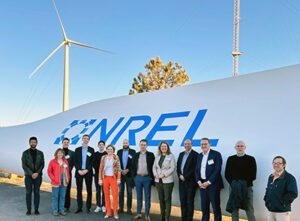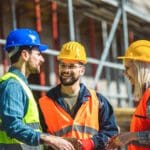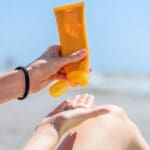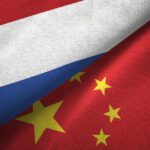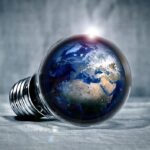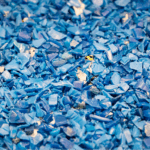From the end of January to the beginning of February, a delegation led by Jacqueline Vaessen visited the US for a working visit in the field of innovation for circularity of critical and advanced materials. The delegation consisted of ChemistryNL, the Ministry of Economic Affairs and Climate, the Ministry of Infrastructure and Water Management and TNO.

Mission leader Jacqueline Vaessen explains why it is interesting to further strengthen cooperation between the US and the Netherlands: “The United States is a leading country in developing solutions for today’s technological challenges. In turn, the Netherlands can share knowledge and experiences in stimulating a green and circular economy that contributes to the energy and materials transition of both.”
“We want to be less dependent on specific materials needed for the energy transition. This is possible if the Netherlands positions itself differently in the chain of these materials, for example with (new) advanced and innovative (process) technology. Europe, including the Netherlands, has a lot to offer the US. On the other hand, the US is very successful in developing business cases with a value chain approach. An approach that ensures that appealing plans become reality in the short term. Close cooperation is therefore beneficial for all of us.”
A selection from the program
- We visited the company Aqua Metals, Inc., which can recycle black mass without CO2 or NOx emissions. Aqua Metals, Inc. does this through a closed process. In some cases, the recycled metals have a higher degree of purification than the virgin metals and require less energy than existing battery recycling methods.
- At the University of California, Berkeley and at Lawrence Berkeley National Laboratory, we exchanged ideas for synergy in battery/materials chemistry and chemical processes for battery recycling.
- In San Francisco we visited Google, where we received an introduction to, among other things, the ‘Startups for Sustainable Development Program’ and the use of data to stimulate plastic recycling.
- At Stanford University we discussed the mutual interests in innovation programs on the American and Dutch sides (National Growth Fund programs). Stanford and Dutch institutes already collaborate, but often on the basis of personal contacts between researchers. During the visit, all parties emphasized that there is certainly room for more structural and institutional cooperation. We received an introduction to Ammobia, a spin-out startup from Stanford University that developed an innovative process to produce green ammonia.
- The Rocky Mountains Institute showed us the possibilities of using data, analyzes and models.
In Sacramento, we at CalRecycle discussed market incentives to drive a circular economy. The financing problem exists in both the Netherlands and California. - At the University of Boulder, Colorado and the National Renewable Energy Laboratory (NREL), they are investigating perovskite solar cells, similar to TNO. They are also looking at options for recycling wind turbine blades, including research into suitable materials. NREL also presented an interesting way to connect startups with investors to scale new technology. We will continue our discussion during NREL’s visit to the Netherlands next March.
- In Denver we spoke with the Colorado Energy Office (part of the Colorado state government). We zoomed in on the policy surrounding making the industry more sustainable in the field of CO2 reduction and a circular economy.
- The University of Nevada at Reno welcomed us to exchange ideas on how the combination of knowledge, technology and economics can contribute to social challenges. Specific themes for collaboration that we discussed: recycling of composite materials, lithium extraction and biomass conversion, but also talent development/exchange.
The program was established by the Innovation Attaches and the I&W Attache network of the Consulate General in San Francisco and the Embassy in Washington, DC.
